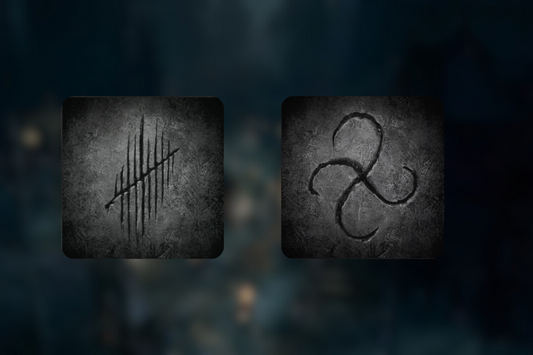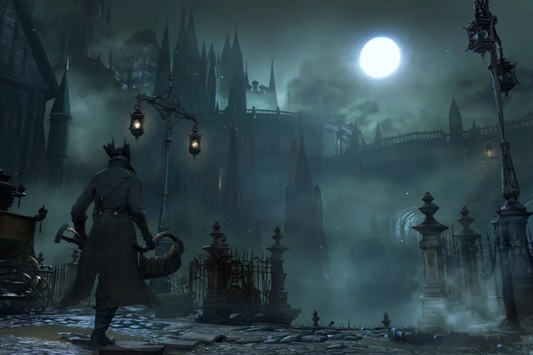Few games have left a lasting impact on the RPG genre like Fallout: New Vegas. Released in 2010 by Obsidian Entertainment, New Vegas took the foundation laid by Fallout 3 and expanded upon it in ways that made it one of the most beloved entries in the franchise. From its deep role-playing mechanics to its richly detailed world, New Vegas remains a standout title that players continue to revisit even more than a decade later.
But what is it about Fallout: New Vegas that makes it endure while so many other RPGs fade into obscurity? In this article, we’ll break down why the game continues to stand the test of time, looking at its storytelling, gameplay depth, and the freedom it offers players in shaping their own post-apocalyptic journey.
A Story of Revenge and Power Struggles
One of the biggest reasons Fallout: New Vegas remains relevant is its compelling narrative. Unlike other Fallout games where the protagonist has a clear-cut personal connection to the main quest (such as searching for a missing family member), New Vegas starts with something much simpler: revenge.
The Mystery of the Courier
You begin the game as a courier, shot in the head and left for dead in the Mojave Desert. From the very start, New Vegas gives players complete narrative freedom—you can choose to track down the man who shot you (Benny), ignore him entirely, or even decide that revenge isn’t worth it.
Factions and Consequences
What really makes New Vegas special is how the story evolves based on player choices. Unlike the simplistic good vs. evil morality system in Fallout 3, New Vegas presents a world filled with factions, each with its own agendas. The player must decide whether to side with the New California Republic (NCR), the brutal Caesar’s Legion, or the enigmatic Mr. House or forge their own independent path.
This faction-based storytelling makes the Mojave Wasteland feel alive and reactive. The player’s choices genuinely shape the world, with different endings providing vastly different consequences for the people of New Vegas.
Unmatched Role-Playing Depth
Skill Checks That Matter
New Vegas takes role-playing seriously. Dialogue and decision-making are heavily influenced by your character’s stats, skills, and perks. For example, a high Speech skill can let you talk your way out of battles, while a strong Science skill can allow you to manipulate technology to your advantage.
This level of depth ensures that no two playthroughs feel the same. Unlike many modern RPGs that rely on simple dialogue trees, New Vegas constantly adapts to the player’s choices, rewarding creativity and intelligent character builds.
A True Open-Ended RPG
One of the biggest complaints about later Fallout games (Fallout 4, in particular) is their reduction in player agency when it comes to dialogue and role-playing. New Vegas remains one of the last Fallout games to truly allow players to role-play their character however they want—whether that’s as a heartless mercenary, a smooth-talking diplomat, or a chaotic wildcard who simply wants to watch the Mojave burn.
A Living, Breathing Wasteland
The Mojave’s Rich History
The Mojave Wasteland is more than just a post-apocalyptic setting—it’s a world brimming with history, secrets, and conflicts. Every location has a backstory, from the tragic remnants of Vault 11 (where a sinister social experiment forced its inhabitants into horrific choices) to Camp Searchlight, a town wiped out by radiation.
Unlike Fallout 3’s Capital Wasteland, which often felt like a desolate and crumbling world, the Mojave has a sense of civilization trying to rebuild. Towns like Goodsprings, Novac, and Freeside show that society is struggling but still functioning, making the world feel more grounded and immersive.
Dynamic Side Quests
One of New Vegas’ greatest strengths is its side quests. Instead of generic fetch quests, nearly every side mission in the game has multiple solutions and moral dilemmas.
For example, in "Beyond the Beef," you investigate the White Glove Society, a group of high-society cannibals. You can expose their crimes, join them, or manipulate them into eating someone else. In another quest, "Come Fly With Me," you help a group of ghouls attempt to launch themselves into space—but whether they succeed or explode mid-air depends on your choices.
This level of quest design keeps New Vegas fresh and engaging, even after multiple playthroughs.
Gameplay and Mechanics That Still Hold Up
Combat with Variety
While New Vegas inherited the first-person shooting mechanics from Fallout 3, it improved them significantly with better weapon variety, iron sights aiming, and expanded modding options. The addition of unique weapons, like the Anti-Materiel Rifle, That Gun, and Euclid’s C-Finder, gives combat a sense of personalization that many RPGs lack.
Hardcore Mode for Realism
For those seeking an even greater challenge, New Vegas introduced Hardcore Mode, which forces players to manage hunger, thirst, and sleep. Healing isn’t instantaneous, and ammo has weight, making survival a real challenge.
This mode adds a layer of realism and immersion, making every decision—such as hoarding supplies or taking on too many enemies—far more meaningful.
Modding: Keeping the Game Alive
Another reason New Vegas has stood the test of time is its modding community. Thanks to mods, the game has been enhanced with new quests, graphical improvements, bug fixes, and even entire new storylines.
Some of the best New Vegas mods include:
- "Project Nevada" – Adds new gameplay mechanics like cybernetic implants and enhanced combat.
- "New Vegas Script Extender (NVSE)" – A must-have for improving game performance and compatibility with other mods.
- "A World of Pain" – Expands the Mojave Wasteland with new areas and tougher challenges.
- "Tale of Two Wastelands" – Allows players to travel between Fallout 3 and New Vegas, creating one massive interconnected world.
Thanks to these and thousands of other mods, New Vegas continues to evolve and remain fresh, ensuring that players can always find new experiences within the game.
Conclusion: A Timeless RPG
Despite its age and occasional technical issues, Fallout: New Vegas remains one of the most influential RPGs of all time. Its deep storytelling, meaningful choices, and richly detailed world set a standard that few games have matched since.
Unlike many modern RPGs that prioritize cinematic storytelling over player agency, New Vegas gives players full control over their fate in the Mojave Wasteland. Every playthrough offers new possibilities, new alliances, and new ways to shape the future of the wasteland.
For these reasons, Fallout: New Vegas still stands the test of time—and likely will for many years to come. Check out our Fallout hoodie at cuboldgaming.com








